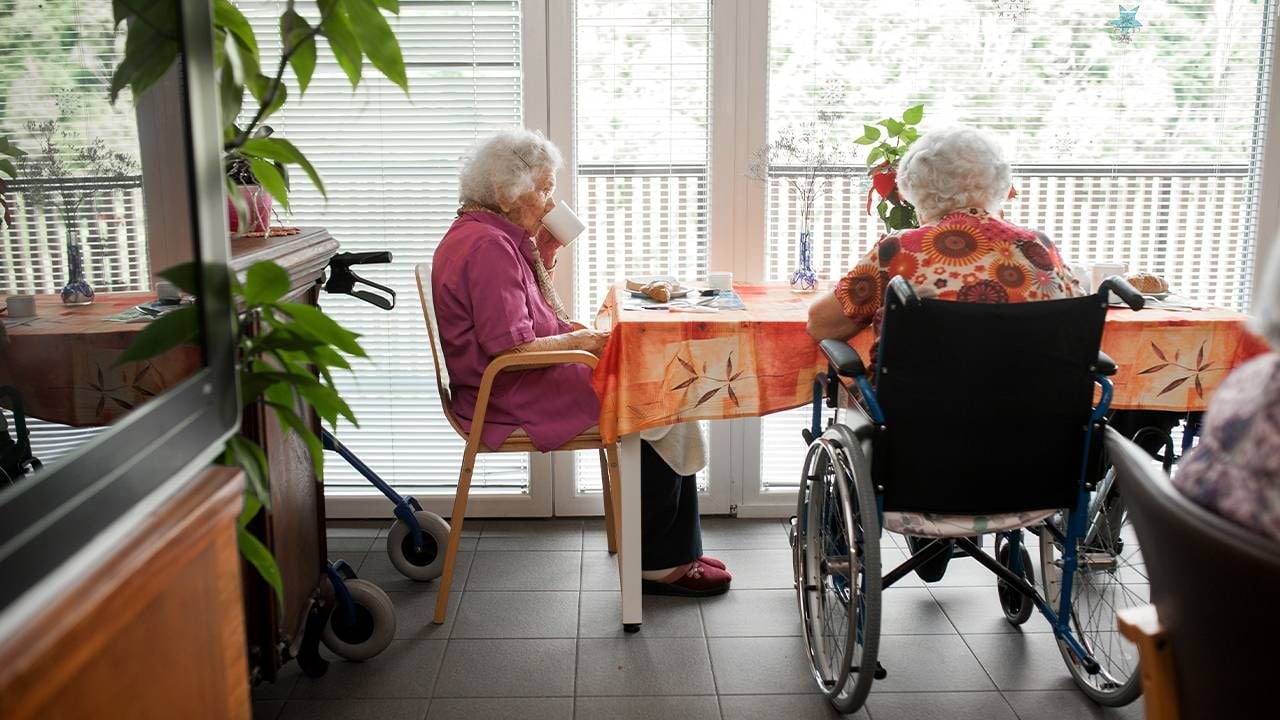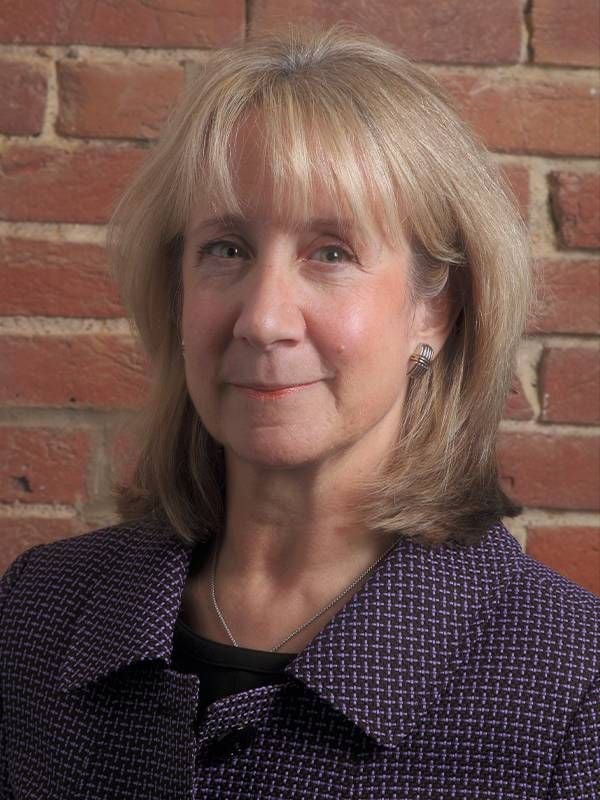Preventing Elder Financial Abuse When Your Parent Is In Long-Term Care
Advice for adult children so their parents in nursing homes and assisted living are safe from scammers
Elder financial abuse — when an older adult becomes a scam victim — is always upsetting. But it can be even more fraught if this type of abuse happens to your parent in a long-term care facility, such as assisted living or a nursing home, where you aren't there to prevent or stop the fleecing.

My late mother lived for a period in one of these communities, and elder financial abuse was something my siblings and I kept an eye out for there; thankfully, mom never encountered it. But I've heard plenty of reports of grim incidents from friends and readers.
The federal Consumer Financial Protection Bureau just came out with a very good guide specifically to prevent elder financial abuse in long-term care facilities.
So, I was pleased that the federal Consumer Financial Protection Bureau (CFPB) just came out with a very good guide specifically to prevent elder financial abuse in long-term care facilities.
The aim is to help professionals who work with those facilities recognize red flags, develop policies and protocols, train staff and use technology to prevent residents from becoming con-artist victims.
As the CFPB report says: "The older resident may be robbed of economic security and placed at risk of involuntary move-out or loss of housing for nonpayment."
Elder Financial Abuse By the Numbers
In 2020, financial institutions filed with the federal government over 62,000 Suspicious Activity Reports involving elder financial exploitation to the tune of over $3.4 billion, according to the CFPB. And 40% of caregivers say the person they care for has been a victim of financial fraud, according to a 2021 Allianz study.
Both elder financial abuse victims and caregivers report about $60,000 in average losses.
"Particularly in times of crisis – like the COVID-19 pandemic – frauds and scams that target vulnerable adults are high and put seniors and their financial security at risk," wrote Kelly LaVigne, vice president of consumer insights at Allianz Life.
One reason elder financial abuse can happen to residents of nursing homes and assisted living facilities: members of their care teams can get access to their financial information and sometimes their medical records.
One way to help avoid this type of elder abuse is by setting up guardrails.
Resources to Keep Your Parents Safe From Fraud
The free Thinking Ahead Roadmap website, created by the University of Minnesota and AARP, outlines steps to choose a trusted financial advocate or financial power of attorney. Online monitoring services such as Carefull and EverSafe can identify suspicious behavior across numerous financial accounts.
Carefull, for instance, monitors banking and credit card accounts for mistakes and signs of fraud and sends alerts to the individual or a circle of people designated when it spots something unusual. EverSafe sends alerts to both the older adult and a selected team of family and outside professionals chosen to keep watch on the person's finances.
For some pointers to prevent and spot financial elder abuse in long-term care, I interviewed Elizabeth (Liz) Loewy, the former founding chief of the Elder Abuse Unit in the New York County District Attorney's Office and co-founder and chief operating officer of EverSafe. Highlights:
Kerry Hannon: Can you give me the backdrop for the urgency here for adult children of parents living in assisted care communities or nursing homes?
Liz Loewy: Unfortunately, there can be financial mistakes, fraud or identity theft that occur as a result of living in this kind of community. There are also instances of improper or inflated billing, double bill and identity theft by 'bad apples' on staff. Unfortunately, these cases are not uncommon.
What role did COVID-19 play in exacerbating elder fraud issues in these facilities?
"Don't assume that a person who's seventy-five, eighty-five, ninety-five or older is being paranoid."
Older people, who perhaps had cognitive issues, became isolated with lockdowns. That became a bigger risk factor in a nursing home or assisted living facility, because folks couldn't visit — whether it was their adult children or close friends or other loved ones.
The scammers worked overtime.
Because of some problems associated with aging and being on lockdown without having a trusted family member to check in — it became worse.
What's the best move adult kids can do to stay on top of the issue?
The number one thing is to listen. Just listen.
I've had a case as a prosecutor with someone who was in an assisted living facility who kept complaining that her money was missing, and she had some other cognitive challenges related to aging. She kept telling everyone 'My money's not right.' They dismissed it for over a year. And it turned out that, in fact, a guardian that was involved with her was in fact stealing from her.
And so, one of my rules for prosecutors was: Don't assume that a person who's seventy-five, eighty-five, ninety-five or older is being paranoid.
Take a look at what they're saying and check to make sure their finances are okay. If they talk to you about a strange phone call and they said, 'But I didn't do anything, I knew better,' you better check into that because maybe that was a warning sign that they got that call or they're on a sucker list.
Are sucker lists a real thing?
Sucker lists exist.
Another thing I saw as a prosecutor is that scammers are smart. They often know when someone's in a nursing home or assisted living. They often know if someone's suffering from some mental impairment, like dementia, even before family members.
They take advantage of that, but they also know that banks and financial firms have gotten better at scanning for irregular activity. Scammers typically start small and steal across accounts and across institutions. They don't often take fifty thousand dollars or a hundred thousand dollars from one account. There's a little transaction first and it builds over time.
But, while your bank may flag suspect transactions with their own accounts, they cannot protect money across accounts. Your bank can't ask your investment broker if they are noticing anything unusual due to privacy rules.
How do you start the conversation with your parent?

To make sure that your older parents aren't defrauded, get them to talk to you openly. Don't infantilize them and act like you're now your parents' parents because they're older and they're in assisted living or in a nursing home.
I have talked to hundreds, if not thousands, of older people with dementia. And even people with moderate to severe dementia have lucid intervals sometimes, where they can talk to you. If there's any way you can, get in front of problems, by talking about common scams and ways people are defrauded.
Talk about how good the scammers are, what they do. Remind them regularly to never reply to any request that's not from someone they know or a pop-up that comes up on their computer and is flashing 'You've been infected!'
Do not click that link, do not call that number. Call me; call the trusted adult child to talk.
You suggest the team approach. How does that work?
Form a team with trusted individuals to monitor accounts. It's better to have more than one person on that team. So many older adults defer to one child, and unfortunately, sometimes that kid can be a problem.
Consider putting either all the siblings, or at least two, on the team to keep some transparency and have on your team a family CPA or a family lawyer or a loved one who's a trusted friend outside of your family.
Are there any other resources that you would recommend?
AARP's Fraud Watch Network is just incredible and can help you spot and avoid scams. You can sign up for free Watchdog Alerts; review a scam-tracking map. They've kept up to date with some sophisticated COVID scams. They've done a terrific job on that.


